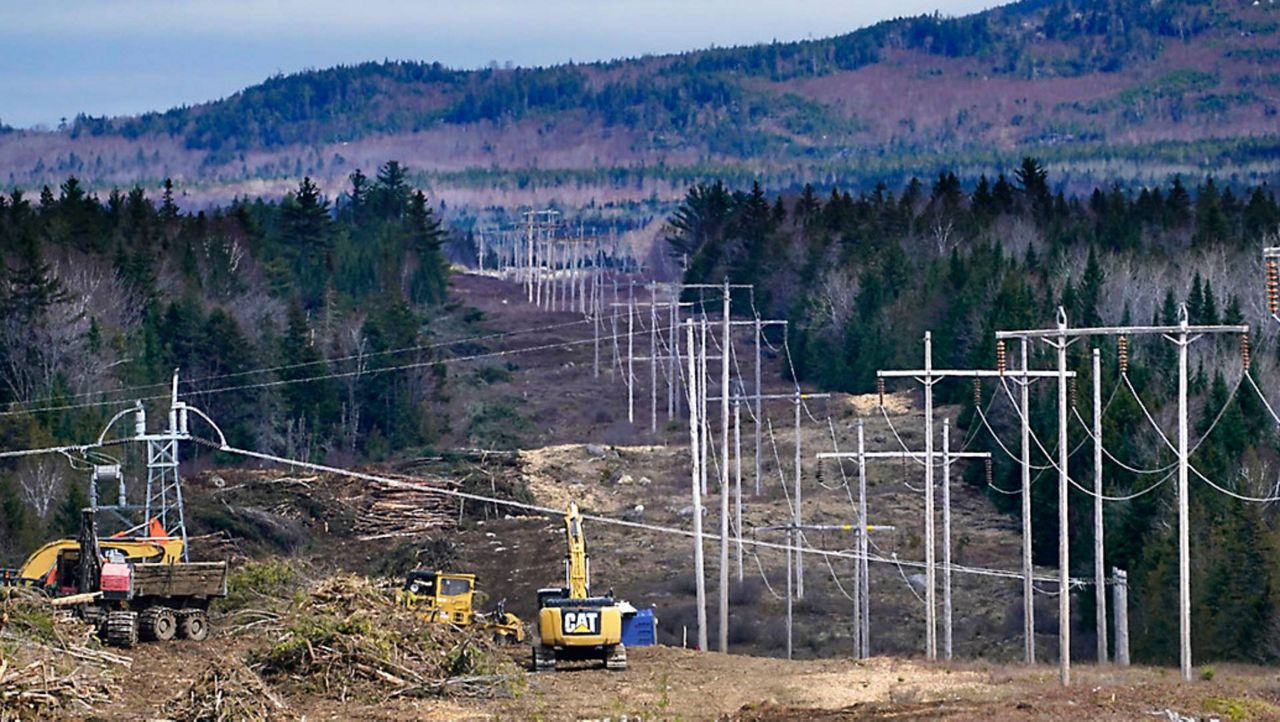At this point, it's no secrent that average home prices have shot up throughout Maine since the pandemic began, and assessors tell Spectrum News that an influx of people moving into the state is a key factor in the pricing surge.
“We’ve never seen a market like this before,” said Madeleine Hill, president of the Maine Association of Realtors.
Due to a lack of housing stock and a massive wave of in-state migration, median home prices have been steadily increasing over the past couple of years in nearly every Maine county.
Sales data from the association show the sharpest price increases in Knox County (a jump of 28% in 2021, compared to 2020), Piscataquis County (up 27% year-over-year) and Oxford County (up 25.5%).
In terms of dollar figures, this means that a house in Knox County has jumped from an average price of $268,250 in 2020 to $344,000 in 2021. According to Zillow.com, in the Piscataquis County town of Greenville, houses are now being sold for $229,297 compared to $169,000 two years ago. And in Oxford County, a home in Norway is now selling for an average price of $253,390 compared to $189,000 two years ago.
Across Maine's 16 counties, data from the association indicates Maine’s average home sales price has jumped from $225,000 in 2019 to $256,000 in 2020 to $299,000 in 2021.
Currently, according to Zillow, the average home price across the state sits around $341,268.
According to Realtor.com data from February, Cumberland County has the highest median house price in the state at $419,000. York County is second, with a median house value of $389,900, while Lincoln County is third with an average sales price of $368,000. Aroostook County currently has the lowest median price at $149,900.
A primary reason that housing prices are soaring is a lack of available homes. Data from the Maine Association of Realtors released in March indicates the number of homes sold in the state dropped by more than 17% compared to the same month in 2021. Supply simply isn’t meeting demand.
Hill, the association’s president, is based in Harpswell, and said in her area alone — which includes Brunswick and Bath — a lack of available homes means prices will stay high.
“We don’t have the supply to even have the prices plateau at this point,” she said.
Dawn Overlock, assessment clerk in the Knox County town of Rockland, said she was seeing houses sell for above-market rates even prior to the pandemic. Now, with a lack of homes and a large influx of new buyers from out of the state, the market has expanded to rural parts of the state.
“(The market) now has gone through the city (to) other areas,” Overlock said. “It just seemed to coincide with (the pandemic) happening,” she said.
Census data shows a massive migration into Maine during the pandemic.
According to the Bangor Daily News, the state’s estimated population as of July 2021 stood at 1,372,000 — an increase of nearly 10,000 compared to a year earlier. In the same period, deaths exceed births by more than 6,300, meaning the growth was sparked purely by people moving into Maine.
Norway town assessor Natalie Andrews said a surge in sales has caused home prices to shoot up by as much as 50% since the pandemic started, particularly along lakefront properties.
“Most of them are out-of-state buyers,” she said.
Hill said new listings in her area are seeing more than 25 showings and more than 10 offers.
“That’s the norm now,” she said.
Hill said it’s not just the pandemic. If the coronavirus were to disappear tomorrow, she said, prices wouldn’t suddenly rebound.
“I think that the pandemic was a driver, but the market was heading in that direction anyway,” Hill said.
Not everyone agrees. Andrews says prices are reaching unsustainable levels for local residents, especially in rural areas like the Oxford Hills.
“The amount that people are paying for properties, people in Maine just don’t make that much money,” Andrews said.
Andrews said the impact of high home prices could affect everyone, not just recent home buyers. When home costs soar to the point where the gap between a sales price and the assessed values gets large enough, the state requires a community to conduct a revaluation. This often leads to a jump in property values and property taxes.
Typically, Andrews said, Norway makes the revaluation process manageable for residents by breaking it into small neighborhood segments every four years. Due to the jump in home prices, however, she said it’s likely the town will have to conduct a full townwide revaluation within the next couple of years.
“I think all the assessors are going to be forced into that unless they had a (reevaluation) right before the pandemic,” she said.









